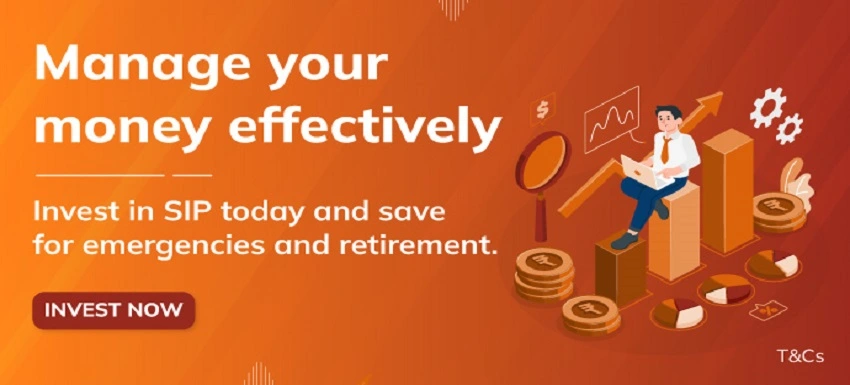THE
ORANGE
HUB
Why Investment is Important in your 20s: Top 8 reasons

When we enter our early or mid-20s and start our first jobs, the salary we receive may not be substantial. With newfound financial freedom, the temptation to spend is strong and saving and investing often take a back seat. However, there are several compelling reasons why starting investments early is a wise choice. In this blog post, we will explore these reasons and shed light on why investment is important at a young age.
8 Reasons Why You Should Start Investing Young
1. Smaller Investment Amounts for Longer Tenures
Starting investments early allows you to achieve your financial goals with smaller monthly contributions. Let us say you aim to save ₹ 20 lakh for a major life event, such as a wedding, in seven years. By investing in equity Mutual Funds with an average return of around 12%, you would need to invest ₹ 15,000 per month, totalling ₹ 12 lakh.
However, if you postpone your investment goal by two years, you would have to invest ₹ 25,000 per month to reach the same target. Your total investment would amount to ₹ 15 lakh. This illustrates that early investing enables you to reach your goals with lower monthly contributions and overall investments.
2. Improved Spending Habits
Initiating the habit of saving and investing at a young age can positively affect your spending habits. When you allocate a portion of your salary to savings or investments as soon as you receive it, you create a budget based on your remaining income. This budgeting practice naturally leads to better spending habits as you become more mindful of your expenses.
To establish this habit, set aside the amount you wish to save or invest before allocating the rest of your income for monthly expenses. For instance, if you earn ₹ 25,000 monthly and aim to save ₹ 5,000, immediately save that amount and then budget your remaining expenses accordingly.
3. Harnessing the Power of Compounding
Early investments harness the remarkable power of compounding. The longer your money remains invested, the more it benefits from compounding. Let us illustrate this with an example: suppose you want to accumulate ₹ 4 crore for retirement. If you start investing in an equity Mutual Fund at age 25, saving ₹ 6,000 monthly until age 60, your total investment will be ₹ 25.2 lakh.
However, if you delay investing until age 40 while maintaining the same ₹ 4 crore target, your monthly investments would need to increase to ?40,000 and your total investment would amount to ₹ 96 lakh. Starting early and staying invested longer significantly reduces your monthly contributions and total investments, highlighting the power of compounding.
4. Building a Larger Corpus
By starting investments early and staying invested for an extended period, you can accumulate a significantly larger corpus. Referring back to the compounding example, the individual who began investing at 25 with ₹ 6,000 monthly contributions accumulated ₹ 4 crore by age 60.
In contrast, someone who started 15 years later at age 40 and maintained ₹6,000 monthly investments for 20 years would accumulate ₹ 59 lakh. Although both scenarios involve investing ₹ 6,000 monthly until age 60, the early investor enjoys a significantly larger corpus without compromising their lifestyle or monthly contributions.
5. Higher Risk-Taking Ability
Young investors have a higher capacity for risk. With fewer financial responsibilities and a longer investment horizon, young adults can afford to allocate a larger portion of their investments to higher-risk assets like equities. Even if risky investments initially underperform, young investors have ample time to recover and correct any mistakes.
For instance, a common rule for equity allocation is ‘100 minus your age.’ A 30-year-old could allocate 70% of their portfolio to equities, while a 22-year-old could invest up to 80%. Starting investments at a younger age allows you to benefit from higher-risk investments, potentially yielding greater long-term returns and a larger corpus.
6. Financial Security and Freedom
Investing early also contributes to your financial security and freedom. It helps you build a safety net for unexpected expenses and emergencies. Having investments in place can provide peace of mind, knowing that you have financial support to fall back on when needed. Whether it is unexpected medical bills, a sudden job loss, or urgent home repairs, your investments can serve as a financial lifeline during challenging times.
Moreover, early investments set you on the path to financial freedom. By consistently building your investment portfolio over the years, you can achieve financial goals such as buying a home, funding your child's education, or retiring comfortably with ease. Financial freedom means having the flexibility to pursue your passions, travel and enjoy life without being shackled by financial constraints.
7. Tax Efficiency
Investing early also allows you to explore tax-efficient investment options. Many investment instruments offer tax benefits, such as tax-saving Mutual Funds (ELSS) and Public Provident Fund (PPF). By starting your investments early, you can take full advantage of these tax-saving opportunities and reduce your tax liability. This not only helps you save money but also enables you to grow your wealth more efficiently.
8. Learning Opportunities
Early investors have the advantage of gaining valuable experience and knowledge about the financial markets. As you start investing at a young age, you have the opportunity to learn from your investment decisions, both successes and setbacks. This hands-on experience can be instrumental in developing your financial literacy and decision-making skills.
By making investment mistakes early on, you can learn important lessons without risking substantial sums of money. Over time, this knowledge can help you make informed investment choices and navigate the complexities of the financial world more effectively.
Initiating investments at a young age offers numerous advantages and that is why investment is important at an early age. You can achieve your financial goals with smaller monthly contributions, develop better spending habits, leverage the power of compounding, accumulate a larger corpus and take advantage of your higher risk tolerance. If you have not already started investing, consider beginning today. Remember that wealth creation is a long-term process and time is your greatest ally when it comes to investing. Embrace the benefits of early investments and work towards securing a financially sound future.
Scroll to top











